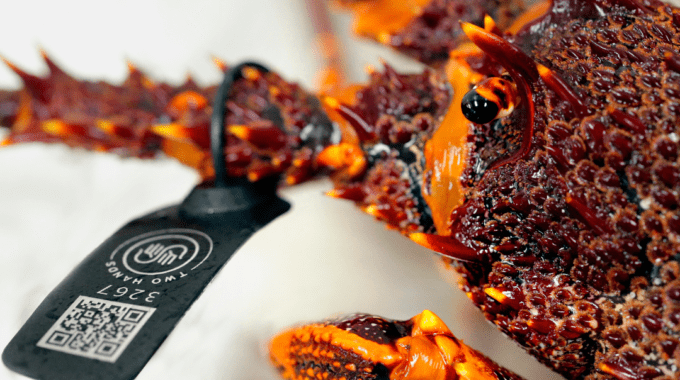Two Hands: restoring trust in food
Two Hands is an Australian start-up that’s on a mission to build a better connection between fishers, farmers, chefs and end consumers – on a global scale.
Modern living has led to a disconnect between humans and the systems that provide our food. And this is coming at a cost. In 2009, the swine flu pandemic – responsible for more than 17,000 deaths worldwide – was found to have originated in pigs from Central America. In 2013, bird flu was transmitted from chickens to humans at a wet market. Now, in 2020, we’re faced with COVID-19, which is said to have originated at a seafood market in China.
Pandemics aside, food fraud has become a massive global issue. It’s bigger than the heroin trade and arms trafficking combined. In the meantime, our fishers and farmers have become invisible, while middlemen get rich on their sweat and toil.
Enter a virtual knight in shining armour. Two Hands aims to restore trust and connection between fishers, farmers, chefs and diners, turning the live food supply chain on its head.
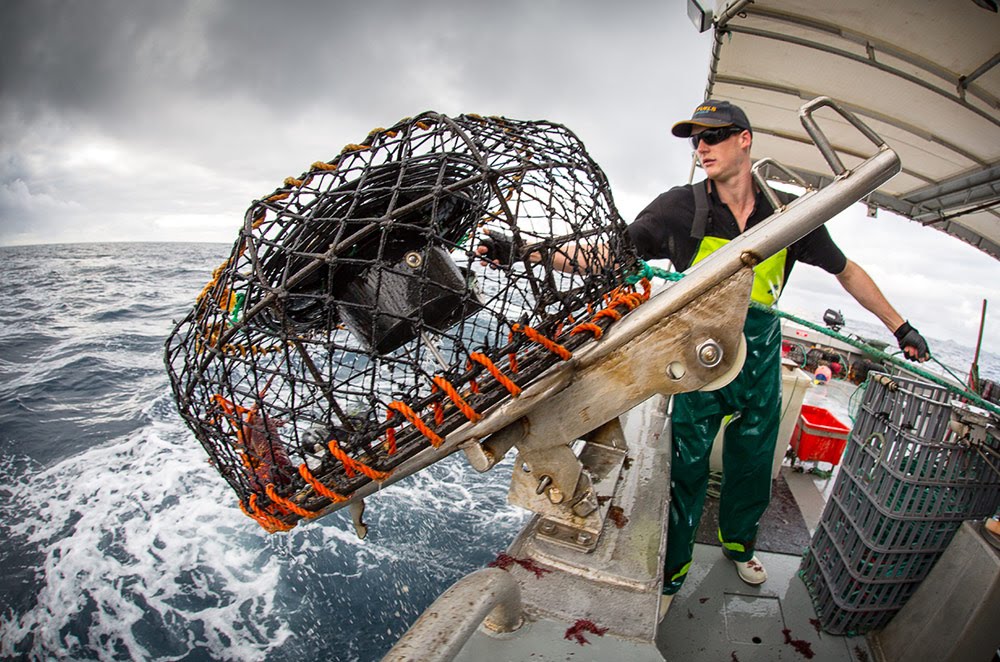
Time to step up
Two Hands founder and Managing Director Greg McLardie first saw problems in the global lobster industry three years ago. Supply chain inefficiencies were causing Australian southern rock lobsters to be handled upwards of 10 times. Meanwhile, fishers were being marginalised by profit-hungry middlemen.
“We were first approached by fisher leaders in the southern rock lobster industry,” McLardie says. “I’ll never forget the call I got from a fisher in mid-December 2016. I heard the desperation in his voice. He’d just finished a meeting with one of the big middlemen, who was saying he had no choice but to accept lower prices in the future.”
McLardie saw that the middlemen were getting meaner and more powerful while fishers and farmers were struggling to stay afloat. He realised that no one was fighting in the corner of the fishers and farmers. It was time for somebody to step up.
“They don’t feel they’re getting the profit, respect or recognition they deserve for all their sweat and risk,” McLardie says of fishers and farmers. “And, to chefs and end consumers – this is the real crux of the problem – the producers are faceless. The harvesting regions are invisible and the supply chain is a black box. That only empowers the middlemen.”
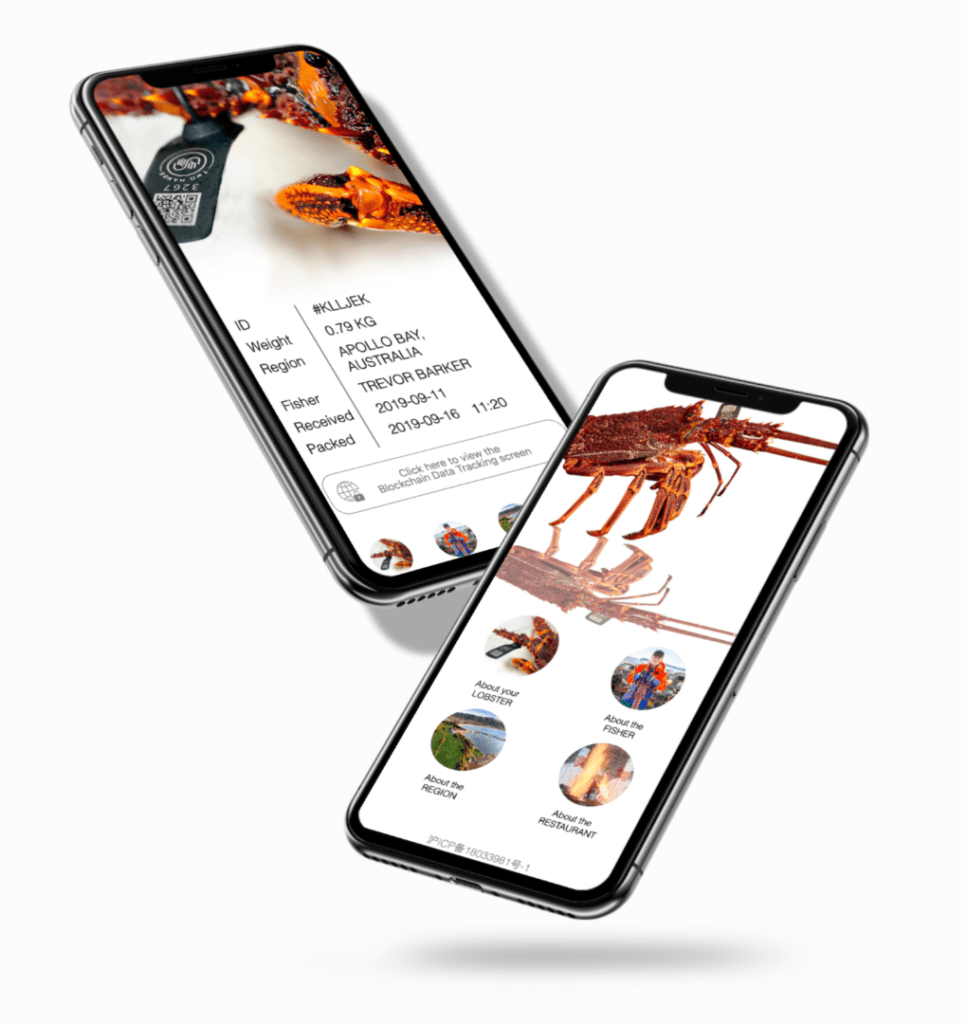
What exactly is fraud when it comes to food?
Food fraud can result in foods being substituted. For instance, market analysis of China found that horse and camel meat was sometimes being substituted for Australian beef.
“We’ve been asked in China if we can sell them lobster heads,” McLardie says, as an example. “Southern rock lobster is the most expensive lobster in the world. So what they do is they set up a banquet table and they’ll put a rock lobster head on a plate. But the rest of the dish will contain something else.”
McLardie has been to the wet markets in China. He has seen first-hand the types of “game-playing” that goes on to increase profitability. Sellers will put chemicals in the water to make the fish look livelier and more colourful. They’ll reduce the salt content of the water the fish is kept in, and so they suck in more water to get more salt. This makes them heavier, increasing the cost by weight.
“There are many aspects to food fraud,” McLardie says. “And because the supply chain is a black box, there’s this lack of transparency. If farmers and fishers and chefs and end consumers saw transparently what was happening in the supply chain, they would be aghast; they would want to do something about it. But because the supply chain is a black box, people are blind to all the issues out there.
“Frankly, the brutal reality is that COVID-19, swine flu and bird flu were all enabled by a lack of transparency and ethics in the food supply chain.”
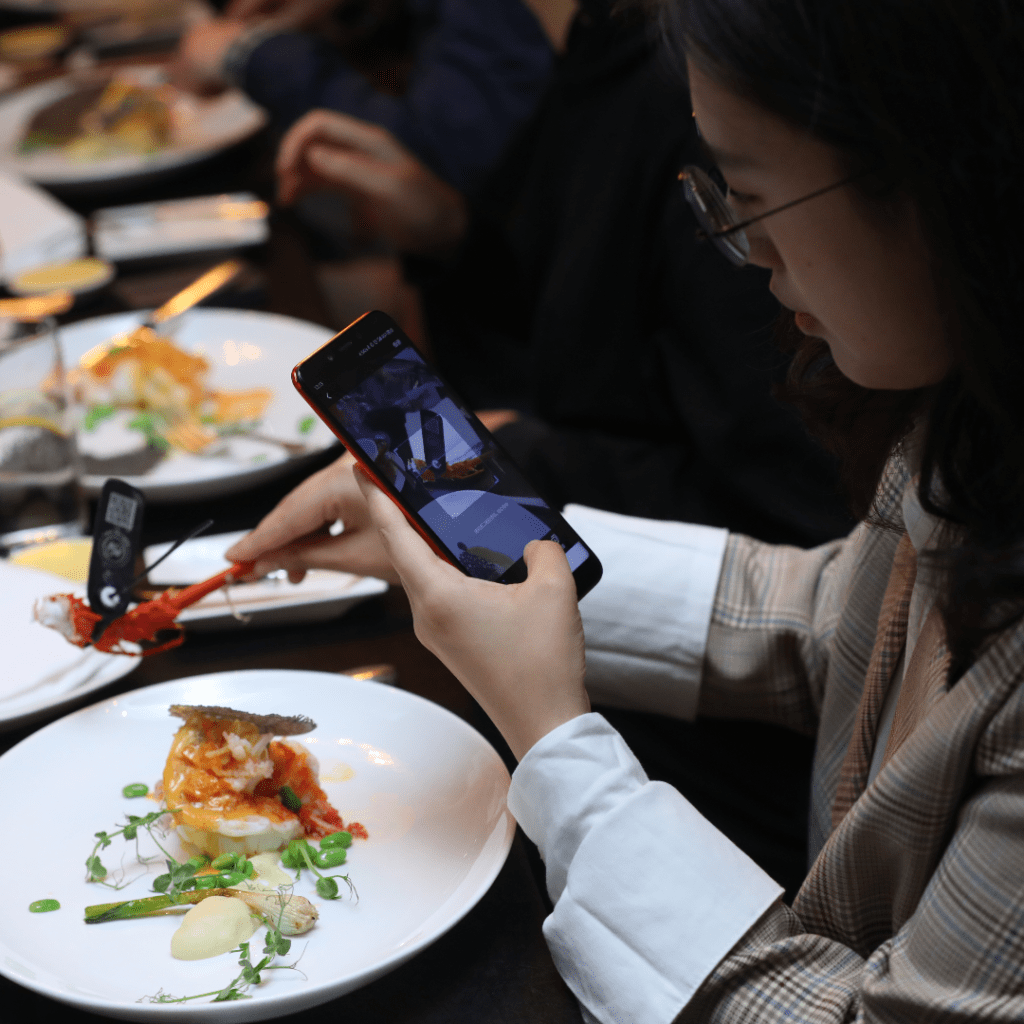
So how does Two Hands work?
Two Hands is a digital marketplace based on blockchain and smart tagging technology. Blockchain tech provides guaranteed proof of provenance and the journey a food has been on. For instance, a lobster can be tagged and traced from catch to plate, so people can see the supply chain is ethical. Chefs and consumers can also see exactly who the producer is.
“In China they have an app called WeChat,” McLardie says. “Something like 900 million Chinese use the app. Users can scan the QR code on the tag or restaurant menu with WeChat, see the date the food was caught, and the name of the farmer or the fisher.”
Two Hands also pre-records a video of all the fishers and farmers on their marketplace. Users can watch a short video of the producer, and see the beauty of the region where the product was harvested. The source of the food – and the person who provided that food – becomes the hero. It cuts out the middleman entirely.
“Because we’re connecting fishers and farmers directly with restaurants, we get orders directly from the restaurant and they connect directly with the fishers and farmers,” McLardie explains. “Because we’re connecting the producers and the restaurants directly, we’ve reinvented the supply chain and cut out many of the middlemen. When we get an order from the restaurant, it’s packed in Australia for that restaurant; when it arrives in customs in China it literally goes straight from airport customs to the restaurant. We avoid the importer, the wholesalers, the last mile distributors.”
With middlemen cut out, this also reduces costs. McLardie estimates that using Two Hands reduces costs by 20 percent. This means they’ve not only created a more ethical supply chain; they also provide producers with better prices and restaurants with better costs.
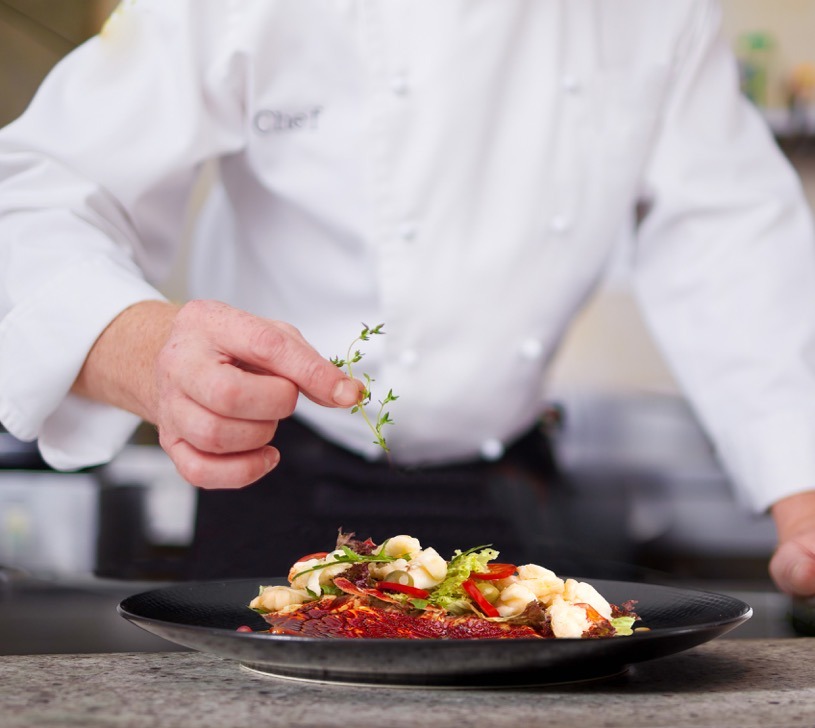
Shaking up the industry
McLardie points out that it wasn’t so long ago that the movie and music industries were on their knees because of rampant pirating and counterfeiting, and were crying out for government and law enforcement action.
“But it was technology that provided the answer, not law enforcement,” he says. “With Netflix and Amazon and Spotify, it became cheaper, easier and more reliable for people to download legally than to do the counterfeiting or pirating.
“Technology with blockchain as a centre will provide the answer to the problems at wet markets and the issues we’ve got with unethical food supply chains.”
The goal of Two Hands is to change the way we experience our food. To understand its provenance, to respect its producers and to celebrate its singularity.
“Restaurants boast about having a Michelin rating” McLardie says. “They put it on their menus, at the front door and on their website. We want them to have the Two Hands logo on the front of the restaurant, on the menu and on the website. It will show that they have ethically-supplied, proven-provenance food.”
Opening our eyes to food fraud, to the hard work of our producers and to the importance of trust in the food supply chain can also make people more aware of how little they really know about where much of their food comes from. Two Hands has already partnered with seafood and beef producers and has more than 50 restaurant customers. McLardie says they hope to expand to other types of food and more restaurants around the world.
“With this technology, we empower producers; we empower chefs and consumers,” he says. “They’ll now have the information that allows them to say, ‘hey, listen, I don’t want to buy that product’. Or, ‘I don’t want to sell a product through that supply chain that’s going through the wet markets’. It’s really exciting where this is going.”
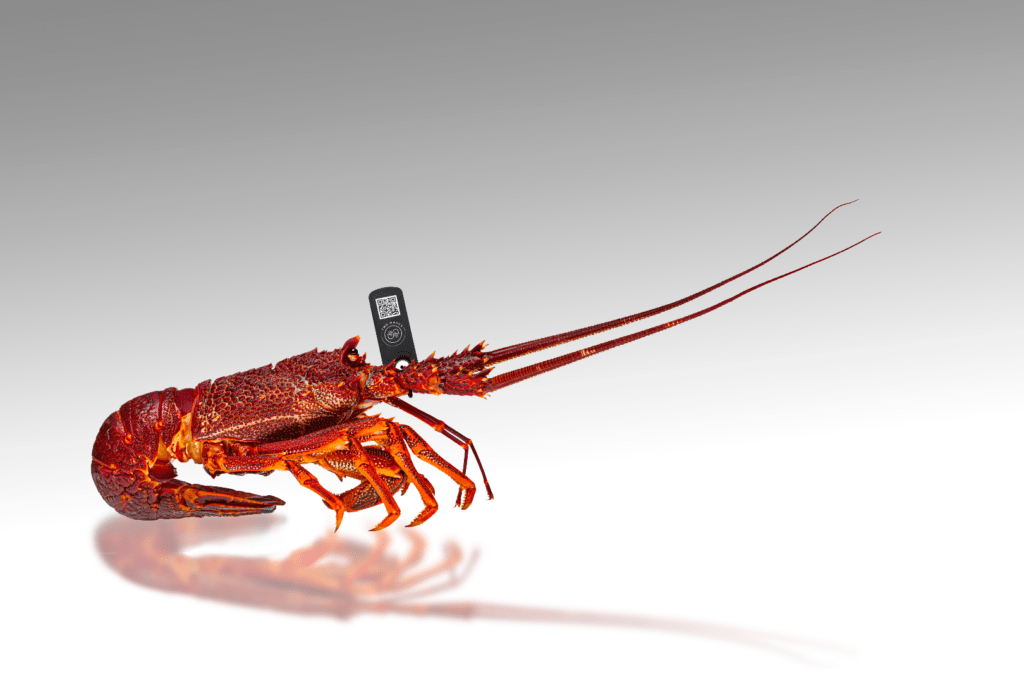
Bringing back the glory days
Before Two Hands, fishers and farmers had no way of knowing where their food ended up. But all this is now changing. To illustrate how important this can be, McLardie shares a story of a South Australian lobster producer who was having a beer with his mates in a pub.
“His phone buzzed,” he says. “So, he picked it up while he’s having a beer. He was shocked to see a picture of his lobster at the Ritz Carlton in Shanghai – one of the world’s premier hotels. He jumped out of his chair and started hooting; showing everyone at his table. Then he ran around the pub to people he didn’t even know, showing them all the picture of his lobster at the Ritz Carlton. He never previously knew where his lobster ended up.”
Providing a platform for fishers and farmers to celebrate the pride that they have in their produce is inspiring stuff. And it’s good news stories like this that keeps McLardie and his team working hard to expand Two Hands into a global phenomenon.
“Right now, fishers and farmers just aren’t getting the respect and recognition that they deserve,” McLardie says. “It’s back-breaking work. And when you think about what they’ve been through with droughts and bushfires and the power of big supermarkets as well?
“I believe what’s going to happen now is that the glory days of fishers and farmers are going to come back. And it will make for a better society as a result. Fishers and farmers used to be the lifeblood of our community. We’re going to bring that back.”
For information about Two Hands, head to 2hs.info


